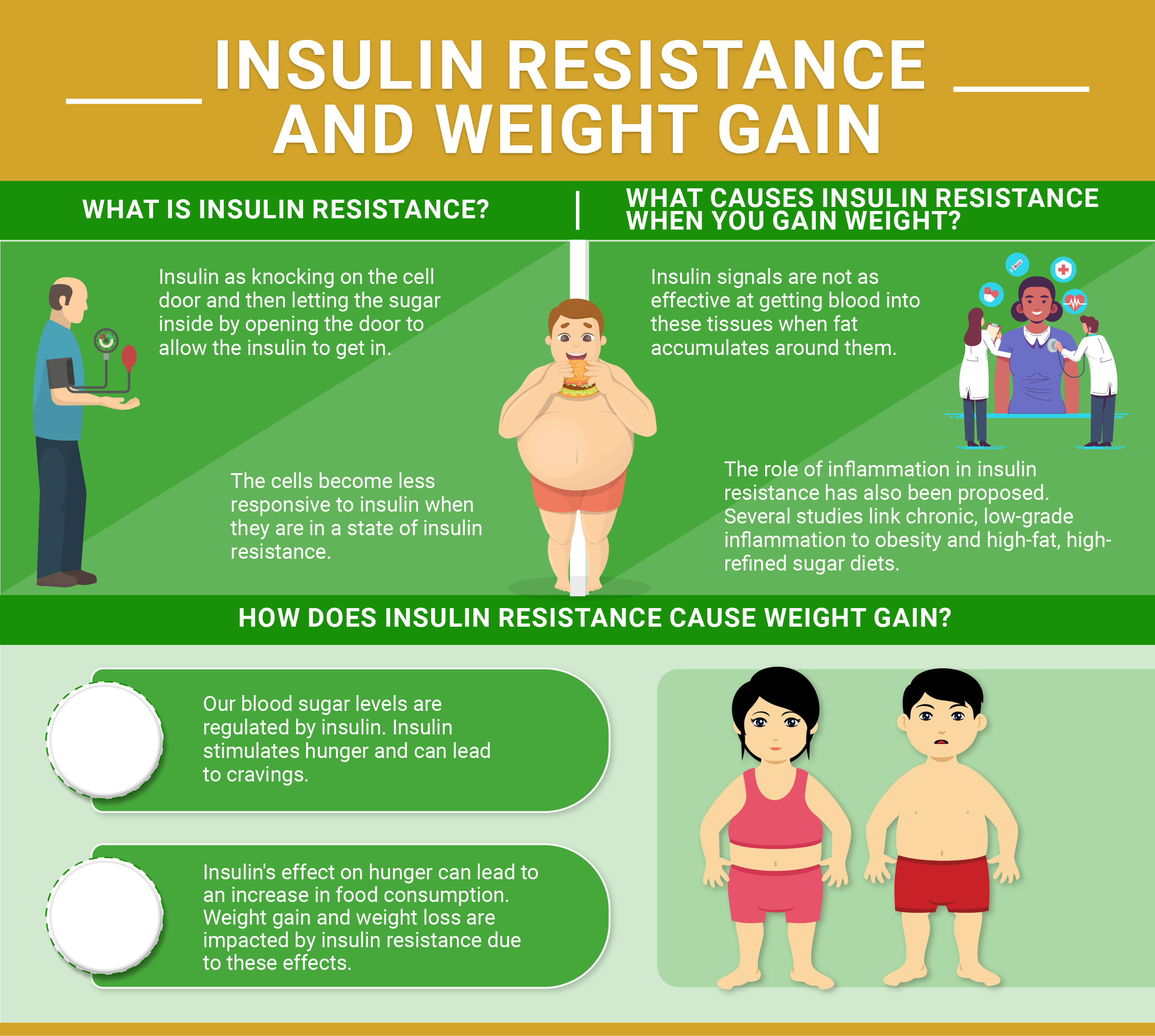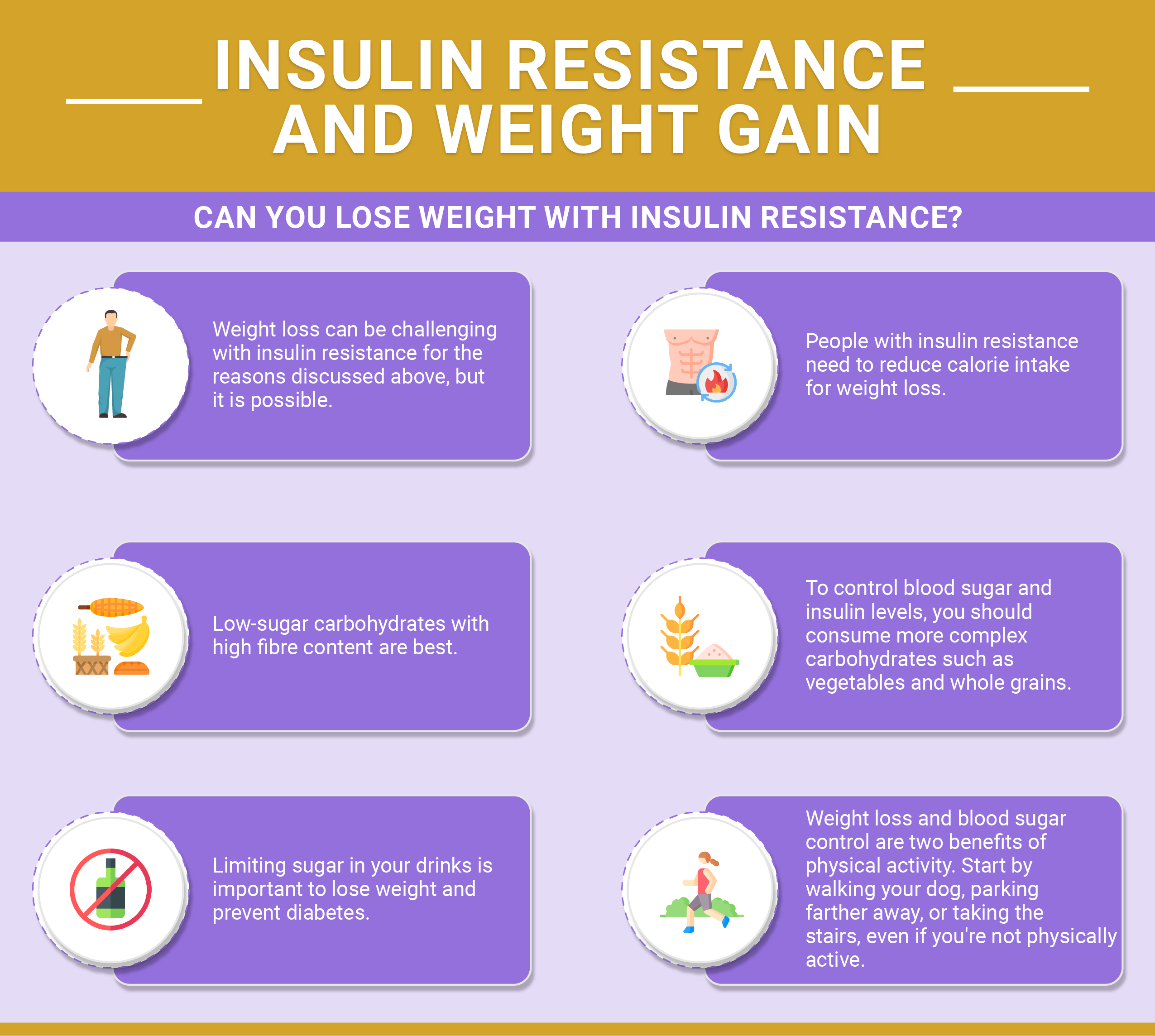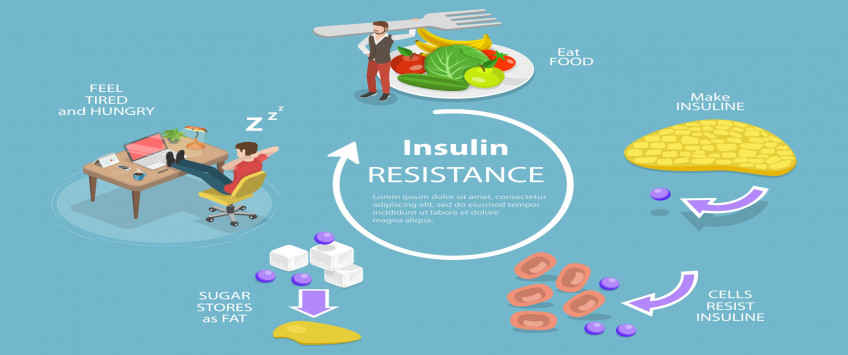Insulin resistance is a major factor in developing various metabolic diseases, such as obesity, type 2 diabetes, and fatty liver disease. It appears that insulin resistance is closely related to weight, both in its tendency to cause weight gain and its effect as a consequence of weight gain. However, the underlying mechanisms are not fully understood. We will discuss in this article the relationship between insulin resistance and weight gain and strategies that patients with insulin resistance can use to lose weight when diagnosed with this condition.
The role of insulin must first be understood. Our cells take sugar from the bloodstream when the pancreas gives us insulin. Consider insulin as knocking on the cell door and then letting the sugar inside by opening the door to allow the insulin to get in. The carbohydrates we consume are broken down into sugar molecules as soon as we eat them, thus causing insulin to be produced. Our cells can use those sugar molecules to produce energy when they are taken in by insulin. Several physiological processes contribute to glucose production in our bodies, which is necessary for our bodies to function properly in day-to-day activities while keeping our blood sugar levels within a normal range. It is important to stress that the sugars created during food digestion are not bad; they are a source of essential fuel that our cells need to function. Nevertheless, sugars can only be utilized as fuel inside cells when they are inside the body. Sugars can harm the body when they float around in the bloodstream.

The cells become less responsive to insulin when they are in a state of insulin resistance. You can compare it to insulin knocking on a door, but it's not opening as easily as it did in the past. Therefore, sugars cannot enter cells for fuel but remain in the bloodstream. Once the cells have taken up excess sugars, the pancreas will produce additional insulin to maintain a normal blood sugar level. When the pancreas is overburdened with demands, it struggles to maintain its function. Consequently, blood sugar levels remain high due to insufficient insulin production. Diabetes type 2 results from this over time.
It is possible to determine if you have insulin resistance through blood tests. Hemoglobin A1c, fasting blood glucose, and fasting insulin levels are all tested. During the fasting period, we can see the blood glucose and insulin levels at the time of the test. The haemoglobin A1c level will give us an idea of the average blood sugar levels over three months. It is also possible to perform a glucose tolerance test, but this is less common than other tests.
Although we don't know how insulin resistance develops, research consistently indicates that it occurs in obesity and weight gain. The liver and skeletal muscles accumulate fat, according to many studies. As we break down food into sugars, muscle and liver cells consume them. Insulin signals are not as effective at getting blood into these tissues when fat accumulates around them. The role of inflammation in insulin resistance has also been proposed. Several studies link chronic, low-grade inflammation to obesity and high-fat, high-refined sugar diets. As a result of inflammation, insulin is less efficient at delivering sugar into cells.
Our blood sugar levels are regulated by insulin. Besides promoting fat storage, insulin stimulates hunger and can lead to cravings. As we reviewed, the pancreas produces more insulin when insulin resistance occurs. In other words, the body is ready to store fat. Conversely, insulin's effect on hunger can lead to an increase in food consumption. Weight gain and weight loss are impacted by insulin resistance due to these effects.

It's possible! Type 2 diabetes can be prevented by losing weight and improving insulin sensitivity. There is even evidence that weight loss can reverse insulin resistance. Weight loss can be challenging with insulin resistance for the reasons discussed above, but it is possible. A few effective strategies are listed below:
Personalized weight loss plans developed by Weightloss Coach consider biological factors such as insulin resistance. Doctors at our practice specialize in treating obesity and insulin resistance. Give us a try if you're looking for medical weight management care! We can create a personalized path for you to improve your health and lose weight.
Learn if you're a good fit for Weightloss Coach by taking our quiz!

Comments